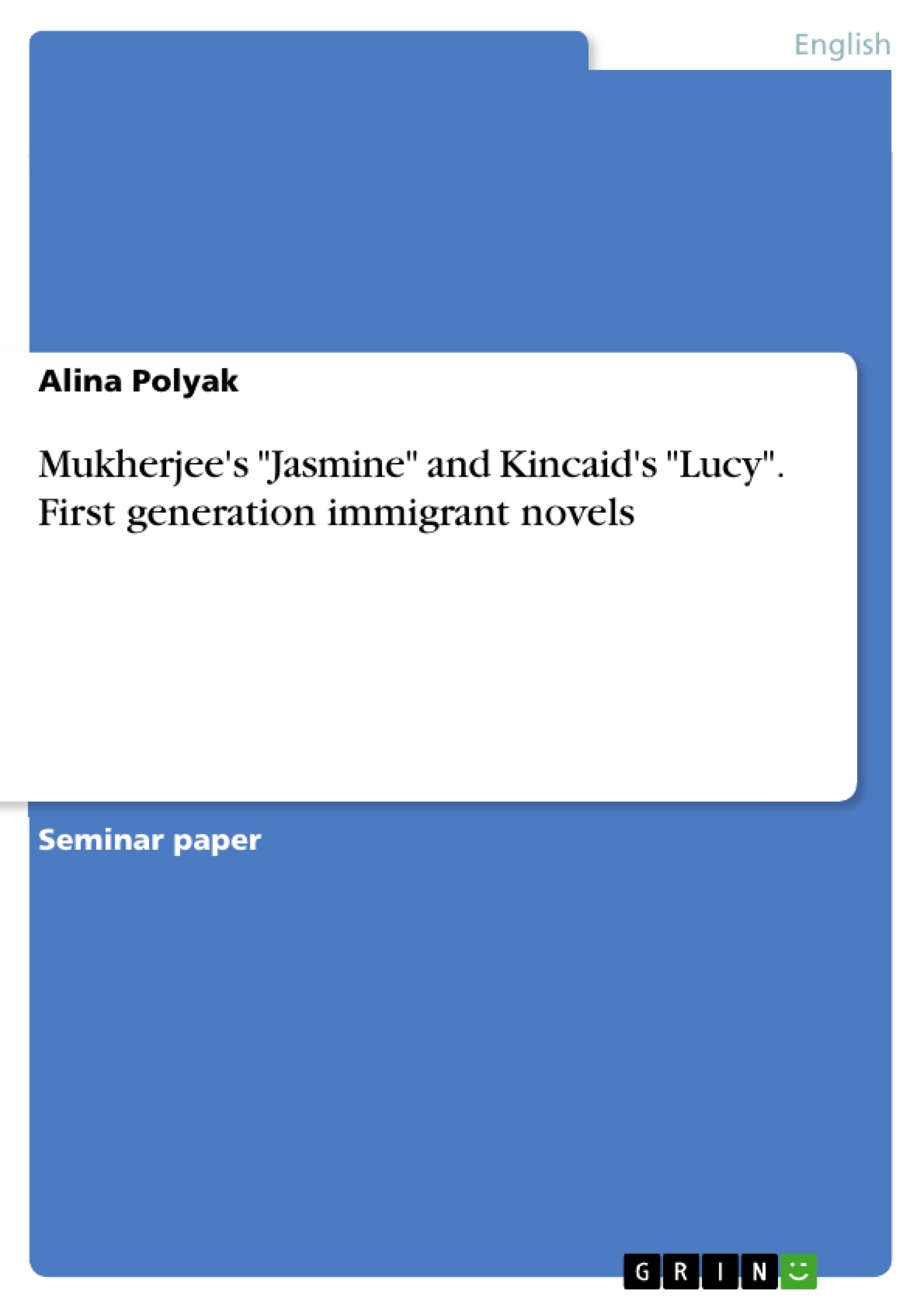I decided to write about the two first generation immigrant novels because I felt that as a woman and a first generation immigrant, I could in a way identify with the protagonists and respond to the problems raised by both authors.
The authors, sharing the common cultural space, also share similar experiences and face similar problems. Coming from quite different backgrounds they might have more in common than it would seem at a first glance.
In the age of globalization migration has become a world wide issue. Its problems spread from traditionally immigrant countries, like the United States and Canada to Europe. Refugees from the Third World countries fill the pages of magazines and cannot be ignored in cities throughout the world. In this paper I would like to see what problems are raised, what are similarities or differences between the ideas represented in the novels and how autobiographical features influenced the writing.
Table of Contents
- Choosing freedom - Mukherjee's Jasmine and Kincaid's Lucy - first generation immigrant novels
- The Problem of Immigration
- Jasmine
- Changing Identities
- The American Dream
- Survivalism
- The Role of the Goddess Kali
- Lucy
- The Price of Freedom
- The Role of Gender
Objectives and Key Themes
This paper aims to analyze two first-generation immigrant novels, “Jasmine” by Bharati Mukherjee and “Lucy” by Jamaica Kincaid, focusing on the experiences and struggles of the protagonists as they navigate their new lives in America. The paper explores how both authors, despite coming from different backgrounds, share similar themes and challenges in their depiction of the immigrant experience.
- The impact of immigration on individual identity
- The tension between cultural heritage and assimilation
- The search for freedom and personal fulfillment
- The role of gender and societal expectations in shaping immigrant experiences
- The complexities of navigating a new culture and building a new life
Chapter Summaries
The paper begins by introducing the two novels and outlining the shared experiences of the protagonists as first-generation immigrants. It then delves into an analysis of “Jasmine,” exploring the protagonist's journey of self-discovery and her struggle to redefine her identity in the context of a new culture. The paper examines the themes of change, survival, and liberation as Jasmine navigates the complexities of American society and seeks to escape the confines of her past. It also highlights the role of economic independence and the concept of “survivalism” in shaping Jasmine's experiences.
The paper concludes by analyzing “Lucy,” focusing on the protagonist's longing for freedom and her desire to break free from the constraints of her family and cultural background. The paper examines the themes of gender, societal expectations, and the complexities of navigating family relationships in a new culture. It highlights Lucy's struggle to reconcile her desire for personal fulfillment with her sense of duty to her family.
Keywords
The paper explores key concepts such as first-generation immigrant experience, cultural identity, assimilation, freedom, liberation, gender roles, societal expectations, survivalism, and the immigrant journey in the context of the American experience. The works of Bharati Mukherjee and Jamaica Kincaid provide insightful perspectives on these themes, offering a nuanced understanding of the challenges and opportunities faced by immigrants in their quest for a new life.
Frequently Asked Questions
What is the main focus of the analysis regarding "Jasmine" and "Lucy"?
The analysis focuses on the experiences and struggles of first-generation immigrant protagonists as they navigate their new lives in America, highlighting themes of identity and cultural tension.
Who are the authors of the novels discussed in this paper?
The paper discusses "Jasmine" by Bharati Mukherjee and "Lucy" by Jamaica Kincaid.
What role does the concept of "survivalism" play in Mukherjee's "Jasmine"?
Survivalism is explored as a key theme in shaping Jasmine's experiences as she seeks economic independence and redefined identity in American society.
How is the theme of gender addressed in the novel "Lucy"?
The novel "Lucy" examines how gender roles and societal expectations influence the protagonist's desire for personal fulfillment and freedom from her cultural background.
What are the similarities between the protagonists of both novels?
Both protagonists share the experience of being first-generation immigrants who face similar problems regarding cultural heritage, assimilation, and the search for personal liberation.
What is the significance of the American Dream in these novels?
The American Dream is analyzed as a complex goal that creates tension between the immigrants' past identities and their new lives in the United States.
- Quote paper
- Alina Polyak (Author), 2006, Mukherjee's "Jasmine" and Kincaid's "Lucy". First generation immigrant novels, Munich, GRIN Verlag, https://www.grin.com/document/55421



